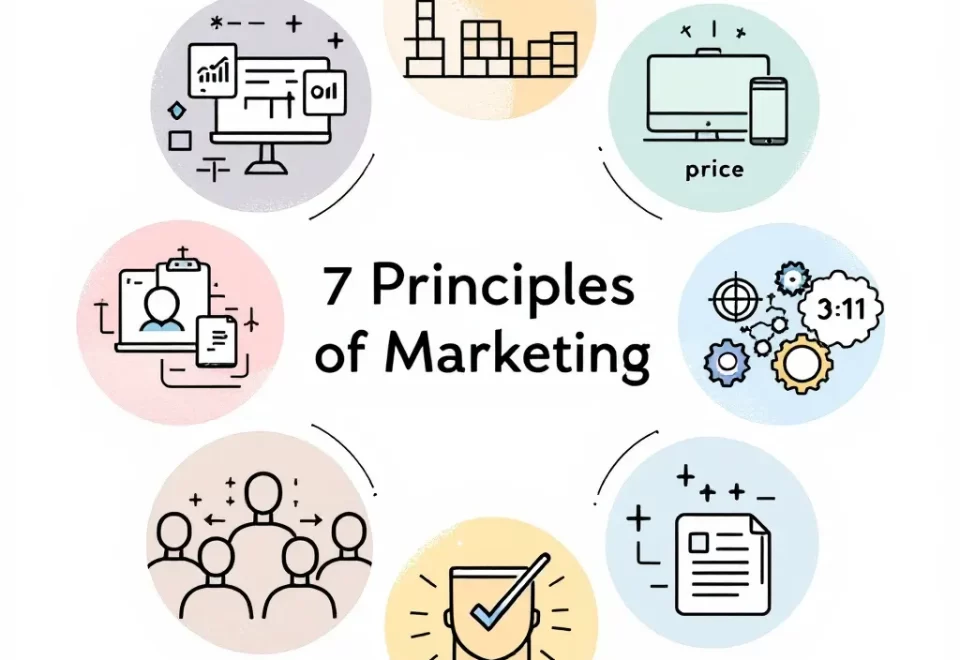Subscription-based businesses can be highly lucrative due to their recurring revenue model. A predictable income can also provide simplified financial planning and stability.
So, it is no wonder that many entrepreneurs are choosing to start businesses that are subscription-based. And with the power to deliver a diversified range of products or services and the ability to cater to various niches, they have vast customer-base potential.
Given such prospects, adopting this business model could prove very fruitful for you.
Get started by checking out the following eight different types of online and offline subscription-based businesses that you could consider starting, with pros and cons for each so that you can determine the most suitable one for you.
1. Subscription Box Company
A subscription box company offers its customers packages of products, delivered periodically based on a subscription model.
In a subscription box, various kinds of products can be sold, such as books, beauty items, clothing, food ingredients and recipes, pet supplies, fitness items, and hobby-related kits, to name just a few. But before you establish your subscription box company, it is essential that you consider the pros and cons.
Pros:
- With satisfied customers, you can have a steady stream of recurring income.
- With every subscriber signed up, you can better predict your company’s future revenues.
- Customization gives you the opportunity for personalized service delivery and enhanced customer retention.
- Speaking of retention, if your product is right, consumers will stay loyal and continue using your service.
- Because the model operates on a schedule, logistics like planning for inventory and transportation becomes easier.
Cons:
- Content changes may not suit all subscribers, which can cause some to cancel their subscriptions.
- The market is crowded, so standing out may be challenging without a USP.
- Although planning is easier in general with this model, issues like delays could tarnish your reputation fast if you do not stay on top of logistics.
- There are inventory management risks, as overstocking or understocking could lead to substantial losses.
- Dependence on third-party delivery services may put you at risk if their service quality drops.
2. Membership Website Services
Membership website services refer to digital platforms where members gain exclusive access to specific content. Examples of such content could include online courses, exclusive editorial pieces, stock photos and videos, or news articles.
Pros:
- There are minimal overhead costs. Since the content is virtual, you save on expenditures like shipping and physical storage.
- There is room for creativity and diverse offerings, from eBooks to webinars.
- You gain the opportunity for market expansion. Your business can reach a global audience as accessibility only requires an internet connection.
- You can easily update or revise your content based on customer feedback.
- Subscribers can access their desired products instantly upon payment.
Cons:
- Digital content may be at risk of theft and unauthorized sharing if you do not pay close attention to protection against cyber threats.
- Finding the perfect price balance to reflect value but still attract customers can be challenging.
- Potential technical issues could impact user experience and satisfaction.
- There is a dependence on stable internet connections. A lack thereof may degrade the user experience.
- Maintaining exclusivity and continuously offering fresh content consumes time and resources.
3. Software-as-a-Service
In a SaaS business model, users subscribe to software applications, paying a recurring fee for access. They could include customer relationship management tools, project management software, and editing platforms.
Pros:
- Companies can scale their offerings and pricing levels depending on user needs.
- Users can access the software from any device with internet access.
- Software improvements and upgrades are pushed automatically.
- There is a lower initial cost compared to the outright purchase of software licenses.
- Data security and backup are usually handled by the service provider.
Cons:
- Without a stable internet connection, user experience may be compromised.
- Customers cannot control updates or changes made on the SaaS platform and that limited control could put some users off.
- There could be data security concerns because sensitive customer information is stored on the cloud.
- Ongoing costs could tally up to more than traditional licenses in long-term usage.
- Compatibility issues with other systems might arise, requiring additional investments in IT support.
Do you need help picking the right type of subscription-based business?
Contact Growth Hackers
4. Fitness and Wellness Membership Services
These businesses provide fitness classes and wellness programs as per their subscription tiers. That could include yoga class subscriptions, diet meal plan services, or meditation class subscriptions, to name just a few ideas under the fitness and wellness membership services umbrella.
Pros:
- Users can get fit and healthy and develop mindfulness.
- With flexibility, customers can use services that work best for their schedules and preferences.
- You can offer various tiers, ranging from basic to premium services. That means you could achieve scalability quickly.
- Unique offerings like personalized fitness routines or diet plans give an edge over competitors and lead to more lucrative revenue.
- Health trends often make such services popular choices among health-conscious consumers.
Cons:
- There is high competition as the sector is flooded with various health and wellness service providers.
- Ensuring each subscriber receives excellent service can be challenging.
- As fitness goals evolve, customers may opt-out after achieving their objectives.
- Constant updates and innovation are required to keep the content fresh and engaging.
- Dealing with individual client grievances or negative feedback may impact your reputation if not well handled.
5. Media Services
An example of this kind of service is an online news platform where users pay a subscription fee for unlimited premium news access. You could set up a general news platform to cater to a niche audience, such as focusing on business news, legal news, or local news.
Pros:
- It provides a steady stream of revenue.
- It can enable high-quality independent journalism to thrive.
- Subscribers can get an ad-free reading experience, usually with additional perks like exclusive stories or event access.
- You can target a global audience without limitations of print distribution.
- Coupled with social media, digital news platforms can help increase your subscriber numbers.
Cons:
- A flooded market with free news sources poses high competition.
- Convincing consumers to pay for something that they are accustomed to getting for free can be challenging.
- Readers may accumulate various subscriptions, causing ‘subscription fatigue.’
- Newsworthy content must be continuous and substantial to retain subscribers.
- Success is heavily reliant on quality journalism.
6. Online Course Subscriptions
This subscription type provides users access to a wide range of online courses. The courses could be on topics such as coding, marketing, personal development, or language learning.
It is important to choose courses that you are passionate about if you decide to set up an online course subscription. It is also important, as with the other types of subscription-based businesses listed here, that you carefully consider the potential pros and cons.
Pros:
- Unlimited access can expand users’ learning opportunities and skills.
- It paves the way for lifelong learners and professional development.
- Courses can offer certifications that can boost the learners’ career profiles.
- Users can have the flexibility to work at their own pace.
- Online courses can cost less than conventional education.
Cons:
- An absence of personalized instruction may not suit all learning styles.
- Course quality can vary widely. Hence, maintaining consistency could be challenging.
- It requires users’ self-discipline to follow through with full course completions.
- Certification credibility might not equate to a traditional diploma’s respect.
- Technological challenges may inhibit learners’ experiences.
Get ready to leverage the power of subscription-based businesses!
7. Premium App Services
This model offers users upgraded features or ad-free versions of applications for a recurring fee. Examples include dating apps, fitness trackers, note-taking apps, and productivity tools.
Pros:
- You can attract customers with a free basic version to then convince them to pay for premium features.
- It provides stable revenue and growth predictions based on subscriber counts.
- You can cross-sell other in-app purchases or services to existing premium subscribers.
- User retention can be high, especially if the app becomes part of users’ daily routines.
- Overhead costs are minimal since everything is digital.
Cons:
- There is high market competition.
- It could be difficult to convince users to upgrade if the free version serves most of their needs.
- There is a need for continuous updates and innovation to keep the app engaging.
- If not handled swiftly, technical issues could cause users to switch apps immediately.
- There is a dependency on app stores’ policies and fees.
8. Periodicals and Magazine Subscription Services
In this model, customers receive regular issues of a particular magazine or periodical, either in physical copy or digital form, on topics like lifestyle, technology trends, travel, or fashion.
Again, if you decide to go down this path, high-quality journalism and a passion for your theme are essential if you want to achieve success.
Pros:
- Regular subscriptions enable the predictability of revenue streams.
- Subscriber loyalty contributes to lower marketing costs per renewal.
- There is the potential for ancillary revenues through advertising within your publication.
- There are opportunities for market segmentation with specialized content catering to different interests.
- There is the opportunity for direct interaction with readers to foster a strong sense of community.
Cons:
- Printed copies have added overhead costs, including printing and postage.
- Competition from free publications could lead to lower subscription rates over time
- The internet’s immediacy lowers the consumer demand for the printed word, so if you are selling physical magazines, it could be difficult to gain the subscriber numbers your business needs to prosper.
- Maintaining high-quality content to keep readers engaged can be challenging.
- Reading habits are evolving with a shift toward digital platforms. If you are selling a physical publication, you need to ensure you have a target audience.
The Takeaway of the Different Types of Subscription-Based Businesses You Can Do
In the realm of diverse business models, subscription-based businesses stand out for their unique advantages and sustainable growth potential. As we have explored, each type of subscription-based business carries its own set of features, benefits, and challenges. But with careful consideration of your target market’s needs, your competency, and the resources at hand, you can find a model that aligns best with your goals.
Embracing such a business model could create a constant revenue stream while building a loyal customer base. So, don’t hesitate to explore these options further. Starting a subscription-based venture might be the path that leads you to the entrepreneurial success that you are pursuing.
Growth Hackers is a renowned small business marketing company helping businesses from all over the world grow. There is no fluff with Growth Hackers. We help entrepreneurs and business owners choose the best type of subscription-based business, increase their productivity, generate qualified leads, optimize their conversion rate, gather and analyze data analytics, acquire and retain users and increase sales. We go further than brand awareness and exposure. We make sure that the strategies we implement move the needle so your business grow, strive and succeed. If you too want your business to reach new heights, contact Growth Hackers today so we can discuss about your brand and create a custom growth plan for you. You’re just one click away to skyrocket your business.









